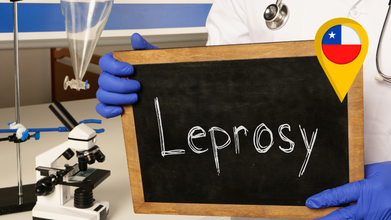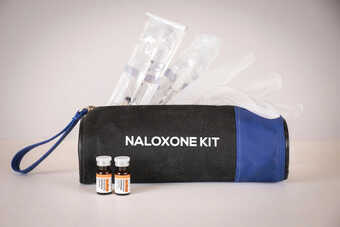- Health Conditions A-Z
- Health & Wellness
- Nutrition
- Fitness
- Health News
- Ayurveda
- Videos
- Medicine A-Z
- Parenting
Matthew Perry Investigation: Can Ketamine Kill Someone?

Credits: IMDb
“I'm not great at the advice. Can I interest you in a sarcastic comment?”

This is what ‘Friends’ actor Matthew Perry’s character Chandler Bing was known for. He was known for being funny. However, he had his own struggles in his personal life and those struggles were acute depression. He was treating it with ketamine infusion therapy which is legal in the US and the UK.
What is Ketamine infusion therapy?
Ketamine is an anaesthetic used to treat depression, anxiety and pain under supervised and controlled medical settings. However, it does have its side effects, which can lead to distortion of sight, sound and time. It can also produce calming and relaxing effects.
Ketamine increases a person’s heart rate and blood pressure. If overdosed, it can leave users confused and agitated and can cause them to hurt themselves without even realising it. It can also lead to liver damage and bladder problems.
However, when used in moderation and under the supervision of medical doctors, it can treat depression where traditional antidepressants have failed.
Prof Rupert McShane, a University of Oxford psychiatrist who runs an NHS ketamine treatment clinic told BBC that ketamine “probably turns off the area of the brain that is involved in disappointment.”
Can Ketamine Infusion Therapy Kill Someone?
In simple terms, it cannot, be if the dosage is given in a controlled setting and as prescribed. Ketamine infusion therapy uses drugs in small doses than those used for anaesthesia. It acts faster than traditional anti-depressants, but the effects also wear off way quickly. Which is why it is important to monitor patients’ mental state for relapsing back into depression and discouraging them from overdosing on it.
There are ways of giving people ketamine. One of the ways is through “infusing”, which means to use an IV drip. However, injections, nasal sprays and capsules are also methods used to give people ketamine.
Since the dosage of ketamine used in the infusion treatment is small, it being the reason of actor Perry’s death was ruled out. The medical examiner also noted that Perry’s last ketamine infusion therapy session happened more than a week before his death, which means by the time he had died, it must have worn off.
So, What Happened To Perry?
Though Perry’s last session was more than a week before, his post-mortem showed that his blood contained a high concentration of ketamine. He had died of the “acute effects” of ketamine.
If it was not his session, then how did he get ketamine?
Prosecutors alleged that his assistant gave him at least 27 shots of ketamine in four days before his death, reported BBC.
Perry has been open about his personal struggles and this is what the doctors and dealers used against him. Martin Estrada, the US attorney for California’s Central District told the BBC that people took advantage of his condition. They charged him 165 times more than what vials of ketamine cost.
Names that have come up include Dr Salvador Plasencia, drug dealers “Ketamine Queen” aka Jasveen Sangha and Eric Fleming, and Perry’s live-in assistant Kenneth Iwamasa.
Who Are These Names And What Did They Do?
Ketamine Queen or Sangha supplied drugs that led to Perry’s death. Her home was a “drug-selling emporium,” said Estrada. More than 80 vials of ketamine, and thousands of pills including methamphetamine, cocaine and Xanax were allegedly found in her house known as the “Sangha Stash House.”
Sangha is known to deal with high-end celebs and was a “major source of supply for ketamine to others as well as Perry,” said Estrada.
Dr Plasencia called Perry a “moron” while charging him $2,000 for vials that cost only $12. He sold Perry 20 vials of ketamine between September and October 2023, costing $55,000.
He was the one who taught Iwamasa, who had no medical knowledge to inject the drug. This is after he knew that “Perry’s ketamine addiction was spiralling out of control,” as per what the investigators told the BBC.
Another dealer Fleming was told by Sangha to “delete all our messages.” While Fleming pleaded guilty to conspiring to distribute drugs unlawfully, he also allegedly messaged Sangha: “Please call...Got more info and want to bounce ideas off you. I’m 90% sure everyone is protected. I never dealt with [Perry] only his assistant. So the assistant was the enabler.”
The court documents also revealed that he asked Sangha on whether the ketamine stays in your system or “is it immediately flushed out.”
Dr Pepper, Bots, Cans
The people who allegedly exploited Perry used coded language for ketamine and called it “Dr Pepper”, “bots”, or “cans.”
Selling overpriced drugs, taking advantage of Perry’s mental condition and falsifying medical records to make the drugs given to him look legitimate by Dr Plasencia is what took Perry’s life.
Iwamasa is said to have administered more than 20 shots of ketamine and three on the day Perry died. Whereas ketamine is only administered by a physician. Authorities also found that weeks before Perry’s death, Dr Plasencia allegedly bought 10 vials of ketamine and intended to sell to Perry.
He also injected Perry with a large dose, two days later. This caused him to “freeze up” and spiked his blood pressure.
When I Die, I Want Helping Others To Be The First Thing That’s Mentioned
Perry had always been open about his drug addictions, struggles with alcohol and his depression. He said that his openness would help others who are also struggling and wanted to be remembered by his quote which also is on the homepage of the Mattew Perry Foundation that helps others struggling with the disease of addiction: “When I die, I want helping others to be the first thing that’s mentioned.”
Five arrests have been made in the case so far.
500 Girls In Rajasthan Receive HPV Vaccine In First Five Days Of Prevention Drive

Credits: Canva
500 girls have received the Human papillomavirus (HPV) vaccines in the first five days of launching the cervical cancer prevention drive. A senior officer, as also reported by TOI noted that misinformation and lack of awareness could lead to a lower number of girls showing up. This is why, while the initial response is encouraging, logistics are still need to be figured out, including identification of session sites and to widen coverage and counter doubts that surround the vaccine. "The HPV vaccine helps prevent cervical caner, one of the most common cancers among women in the country. Addressing public concerns is crucial for the program's success," said the official.
Health officials along with public health experts will be conducting interactive sessions on social media across districts on Thursday. In Sikar, a dedicated platform will also allow experts to respond to the questions directly on HPV infections, vaccine safety, eligibility and benefits.
As of now, the program allows a single vaccine dose for girls who have completed 14 years and are yet to turn 15. As per the Health Department, around 8.32 lakh girls in Rajasthan are eligible for the vaccine annually.
Nationwide Free HPV Vaccine Drive
Prime Minister Narendra Modi on February 28 launched the nationwide Human Papillomavirus (HPV) vaccination campaign for girls aged 14 years from Rajasthan's Ajmer.
The initiative marks a decisive step towards eliminating cervical cancer through timely HPV vaccination. Cervical cancer remains the second most common cancer among women in India. Nearly 80,000 new cases and over 42,000 deaths are reported annually in the country.
Read: PM Modi Launches Nationwide Free HPV Vaccination Drive; A Landmark Step, Says WHO
"Today, I have had the opportunity to launch the HPV vaccine campaign from Ajmer. This campaign is an important step towards empowering women and daughters of this country,” PM Modi said.
“For us, this was a sensitive issue tied to the insult of our sisters and daughters, one that made them ill. That is why we resolved it at a crucial turning point in their mission,” he added.
The World Health Organization has also lauded India's mission to launch the HPV vaccine and prevent the risk of cervical cancer.
“We are leaving no stone unturned to ensure that the daughters of the country are healthy and prosperous. The objective of this initiative is the prevention of cervical cancer," the Prime Minister, earlier wrote in a post on social media platform X.
Who Can Avail The Nationwide Free HPV Vaccination Drive?
The vaccine is most effective when it is administered before exposure to HPV and before becoming sexually active. Young women aged 9 to 14 years show vaccine effectiveness of 74 to 93 per cent and this decreases with age.
Girls aged 9 to 14 should get two doses of the vaccine in 6 to 12 months apart
Women aged 15 to 26 years can get three doses in 0, 2, and 6 months apart
Adults aged 27 to 45 must get it after consultation with their healthcare provider
Chile Becomes The First Country In Americas To Eliminate Leprosy, Says WHO

Credits: Canva
Chile became the first country in the Americas to be verified by the World Health Organization (WHO) for the elimination of leprosy. WHO with Pan American Health Organization (PAHO), congratulated Chile for becoming the first country in the Americas and second globally to eliminate leprosy.
Leprosy (Hansen disease) was historically recorded in Chile at the end of the 19th century on Rapa Nui (Easter Island). The disease was limited in mainland Chile, with sporadic introductions, contained through isolation and treatment measures in the Island, where the last secondary cases were managed by the late 1990s.
Since then, Chile did not report locally acquired case of leprosy in more than 30 years. The last locally acquired case was detected in 1993. However, the disease was never removed from public health agenda and remained a notifiable condition and monitored through mandatory reporting, surveillance and continuous clinical readiness.
Chile Makes History In Health Care
Dr Tedros Adhanom Ghebreyesus, WHO Director-General said, “This landmark public health achievement is a powerful testament to what leadership, science, and solidarity can accomplish. Chile’s elimination of leprosy sends a clear message to the world: with sustained commitment, inclusive health services, integrated public health strategies, early detection and universal access to care, we can consign ancient diseases to history.”
PAHO Director Dr Jarbas Barbosa said, "Chile’s achievement demonstrates that eliminating leprosy is achievable and requires building strong systems that can detect, respond to, and provide comprehensive care for people affected by the disease, including those living with chronic disabilities. Being the first country in the Americas to be confirmed as eliminating leprosy sends a powerful message to the Region – that diseases strongly linked to groups living in vulnerable conditions can be eliminated, contributing to interrupt the vicious circle between disease and poverty.”
How Did Chile Achieve Elimination of Leprosy?
As per WHO between 2012 and 2023, Chile reported 47 cases nationwide, none of which were locally acquired.
WHO notes that Chile's integrated model ensures early detection and comprehensive care: primary care centers serve as the entry point for suspected cases, with timely referrals to specialized dermatology services for diagnosis, treatment, and follow-up. Clinicians receive training aligned with WHO's Towards zero leprosy strategy. The system prioritizes early intervention, disability prevention, and holistic care, including physiotherapy and rehabilitation services, ensuring that anyone affected by leprosy receives continuous support for both acute and long-term health needs to promote full recovery and social inclusion.
What Is Leprosy?
Leprosy is also known as Hansen disease. It is a chronic infectious disease that is caused by bacterium Mycobacterium leprae. It affects the skin, peripheral nerves, upper respiratory tract mucosa and eyes.
If it is not treated timely, it could lead to permanent nerve damage, disabilities and social stigma. However, the condition is fully curable with multidrug therapy and early detection could prevent further complications.
Warning Issued In Plymouth Over Drug Overdose; NAP Shares Antidote That Could Save Lives

Representational Image (Canva)
Warning has been issued in Plymouth due to an increase in drug overdose which have been linked to substances like heroin or pregabalin. Naloxone Advocates Plymouth, also known as NAP issued the warning for people to take "extra care". NAP is a community interest company or a CIC, which is made of volunteers who work to reduce drug-related deaths in Plymouth.
Warning On Drug Overdose: What Is It?
On March 2, NAP shared a Facebook post, where the NAP spokesperson said: "A quick heads up for people in Plymouth/ We have recently seen more overdoses than usual linked to substances that slow breathing (such as heroin or pregabalin). We want people to be aware so they can take extra care."
Signs Of Someone Who Is Overdosing
- Being unconscious
- Slow breathing or not breathing
- Loud snoring
- Choking or gurgling sounds
- Blue lips
NAP also said if someone becomes unwell, one must immediately call 999, and place the person in the recovery position if they are breathing.
What To Do If Someone Has Overdosed On Drugs?
NAP also noted emergency antidote, as reported by Plymouth Herald too, in the event of an overdose of heroin or other opiated or opioids. NAP noted that even if you are unaware of what the unwell person has takes, the antidote "will not harm them, and sometimes drugs contain opioids even when they are not sold as such". NAP said one can administer naloxone as an antidote.
NAP also asked the person to stay with the unwell person for 20 minutes or until help arrives as the person could go back into overdose once naloxone wears off.
If the person is not breathing, one should immediately call 999 and start CPR, noted NAP.
What Is Naloxone? The Antidote That Works On Drug Overdose

As per the National Institute on Drug Abuse, NIH, US, naloxone is a medicine that rapidly reverses an opioid overdose. It is an opioid antagonist. This means that it attaches to opioid receptors and reverses and blocks the effects of other opioids. Naloxone can quickly restore normal breathing to a person if their breathing has slowed or stopped because of an opioid overdose. But, naloxone has no effect on someone who does not have opioids in their system, and it is not a treatment for opioid use disorder.
It should be given to any person who shows signs of an opioid overdose or when an overdose is suspected. It could be administered through nasal spray or injected through the muscle, under the skin or into the veins.
The National Institute on Drug Abuse notes that families and loved ones could carry naloxone with them if they know someone in their family struggles with drug abuse. However, they can ask pharmacists or health care provider on how to administer the antidote.
However one must not that it works in the body for only 30 to 90 minutes, whereas some opioids could stay longer than that. This is why it is important to call for help. Furthermore, people given naloxone must be observed and monitored even after the last dose of naloxone to make sure their breathing do not slow down.
© 2024 Bennett, Coleman & Company Limited

